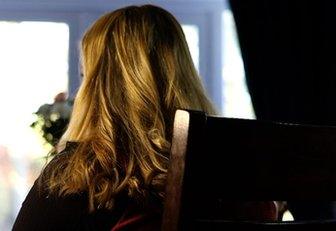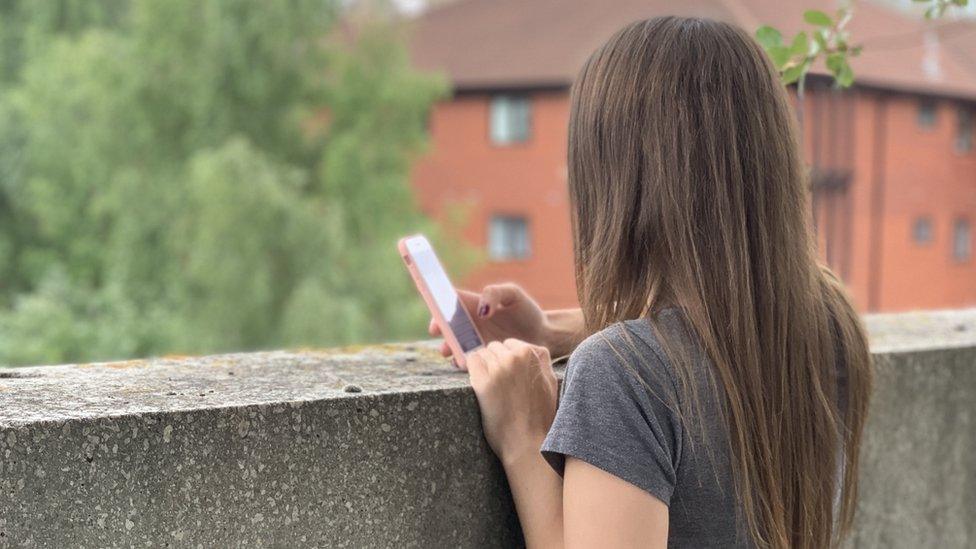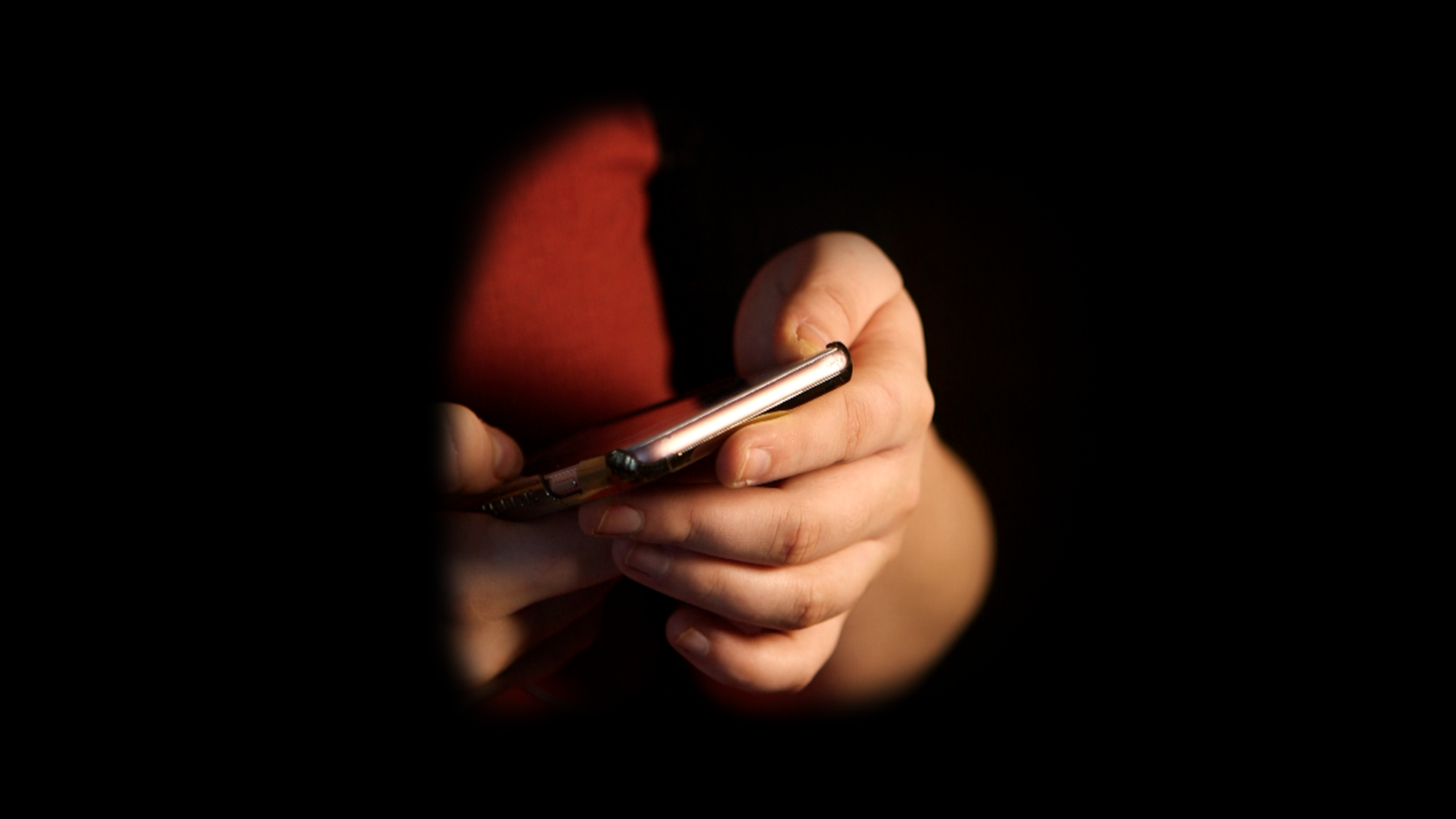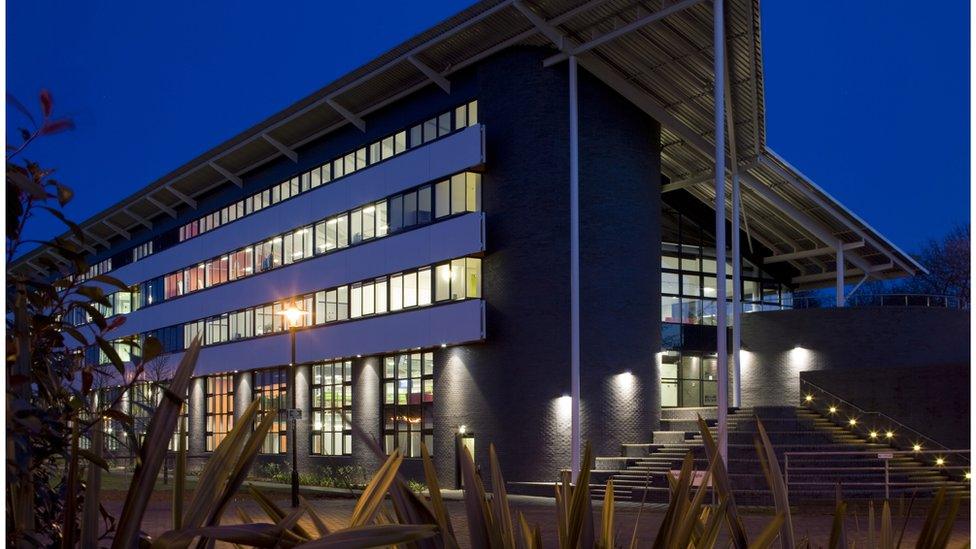Warwick University: Vice chancellor apologises for mistakes over rape chat scandal
- Published
Warwick University vice chancellor apologises over handling of rape chat scandal
Warwick University's vice chancellor has apologised for the way it responded to complaints from female students targeted with rape threats.
Stuart Croft admitted personal and institutional failings, saying there must be "profound changes" to the way the university deals with complaints.
An independent review, external has found a "legacy of mistrust" generated by its handling of the case.
Two women are suing the university for discrimination and negligence.
One of the women - who was subsequently forced to sit an exam alongside one of the men disciplined in the case - says even though Warwick has apologised, it still has not learned from the case.
In an interview with the BBC, Mr Croft said: "We are genuinely sorry. We have got this wrong. We have not supported them enough. We have not communicated enough."
He also apologised for not speaking to the victims directly, saying: "I should have been quicker. I should have reached out. I should have engaged."
Last year, Warwick launched an investigation into a Facebook chat in which male students sent each other sexually violent messages about fellow female students.
Some of the messages were racist. Others referred to graphic descriptions of gang rape and genital mutilation.
Many of the women targeted in the chat were close friends of the men who sent the messages.
After being shown the messages by one of the men, two female students mentioned in the chat made official complaints to the university, which launched an inquiry, led by its chief press officer.
Following the inquiry's report six men were given campus bans ranging from one year to life.
However two of the men's 10-year bans were reduced to one year after they appealed to the university.
Conflict of interest
Warwick's decision to reduce the ban terrified the women, who were then faced with the prospect of seeing the men on campus.
After intense criticism, the university commissioned an independent review, carried out by solicitor Dr Sharon Persaud.
In her report, published on Wednesday, Dr Persaud concludes there was "a profoundly unsatisfactory outcome for almost every single person involved" in the university's handling of the case.
She describes some features of the university's disciplinary processes as "very problematic", and that students and staff have lost faith in their independence and impartiality.

'Rape the whole flat to teach them a lesson'

The men writing graphic rape threats were close friends with some of the women discussed in the chat.

Dr Persaud also says there was a sense the university was more concerned with preserving its reputation, rather than conducting a fair assessment of the case.
The women previously criticised the university for appointing its head of press, Peter Dunn, to investigate their complaint.
And while the vice chancellor denied accusations of a conflict of interest, he did tell the BBC it would not happen again.
Mr Croft said correct procedures had been followed - but he said he accepted the report highlighted procedures that were in need of "fundamental reform".
Exam situation
One of the female complainants told the BBC the university still has not learned any lessons from the case, after she was made to sit an exam next to one of the men from the Facebook chat group.
Speaking publicly for the first time, Danielle - not her real name - said the incident happened, despite her efforts to arrange a separate room for her own use.
She said, as she took her seat, one of the men from the Facebook chat group entered and sat down.
"It was just me and him in a room," she said. "I remember feeling my whole body shaking and my head just feeling really foggy," she said.
"Adrenaline kicked in and got me through the exam and then immediately after I just broke down and went through waves of upset and anger.
"For me it symbolised the fact that at no stage had our concerns and safety been taken seriously.
"All I've heard [from Warwick University] for months is: 'we're listening, we want to fix this, this isn't going to happen again'.
"But as far as I'm concerned things are still going wrong."
Warwick University said it was sorry for the "extremely unfortunate" mistake, claiming it was down to a "miscommunication" about room scheduling.
'Fair and sensitive'
During the university's investigation into the chat last year, some material was passed onto the police, but no action was taken.
In a civil case, the women are suing the university for sex discrimination and negligence in the duty of care Warwick owes its students.
Explaining her reasoning, Danielle said: "I didn't want people to look at our case and think 'I'm never going to complain when something like this happens to me'.
"I wanted an ending that says 'OK things might go wrong but there's always a way that you can challenge that'."

Danielle, pictured, said Warwick University failed in its duty of care.
In response to the claims, the university has maintained that the complaints were handled in a "fair and sensitive way".
When the BBC asked Mr Croft whether the women were treated fairly and sensitively during the process, he said: "No, that's one of the things I would apologise for."
Danielle believes the two positions are contradictory.
"The university want to publicly appear as though they are apologetic and that they recognise wrongdoing, but their failure to take any legal responsibility for their actions does not match with this public persona," she said.
Mr Croft said he would not comment on on-going legal cases.
Personal apology
Mr Croft told the BBC he had not yet personally apologised to the victims, citing concerns about ongoing legal action.
However, since his interview Danielle confirmed she has received a letter of apology from the university.
She said she welcomed the letter, but added: "Once again, the university's attempts to do the right thing are driven by press scrutiny, as opposed to consideration of us and a desire to do what is right by their students."
"The authenticity of their apology will only be truly reflected in actions."
- Published28 May 2019

- Published5 February 2019

- Published31 January 2019

- Published31 January 2019
